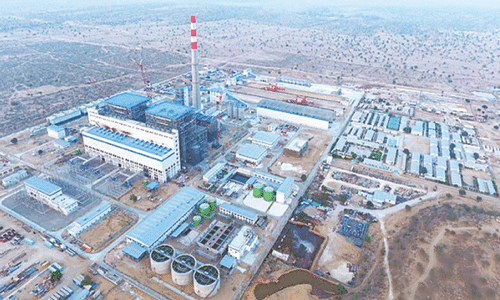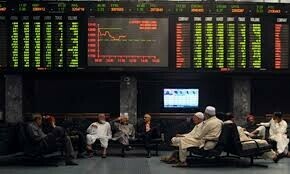 Following an agreement in principle between the two top leaders of Pakistan and India for allowing Indians an overland trade access to Afghanistan via Pakistan, businessmen are eagerly waiting to see the historic Grand Trunk Road re-emerge as a busy trade corridor between South and Central Asia.
Following an agreement in principle between the two top leaders of Pakistan and India for allowing Indians an overland trade access to Afghanistan via Pakistan, businessmen are eagerly waiting to see the historic Grand Trunk Road re-emerge as a busy trade corridor between South and Central Asia.
The road built by the famous Pathan king, Sher Shah Suri in the 16th century linked Peshawar with Calcutta. For centuries, it served as a trade route between the Central and South Asia. Many business visionaries feel confident of revival of this old highway.
“On the political level, the two states continue to trade accusations, but businessmen from both sides remain locked in consultations without any break, to improve trade and explore investment opportunities’’, a Jodia Bazar trader said. He had a lot of information on what’ was going on quietly to improve bilateral business links.
He recalled that the first truck carrying tomatoes from India rolled into Punjab via Wagah for the first time on October 1 last year. Since then no official review has been made of trucks and railway wagons carrying goods from either side, to improve the traffic. But in the year 2007, imports from India exceeded $1 billion. Pakistan’s exports were a little over $400 million.
“In 2008, the two-way trade could be close to $4 billion,’’ he reckoned and estimated that the volume may go beyond $6-7 billion by 2010, once the two sides finalise mutual investment arrangements.
The Indian Prime Minister, Dr Manmohan Singh and Pakistan’s President, Mr Asif Zardari met recently in New York on sidelines of 63rd United Nations’ General Assembly session and announced mutual agreement on four vital business related issues. This accord will allow Indians an overland access to Afghanistan, open up the line of control between the two parts of Kashmir in October for resuming cross border trade and bilateral trading via railways of permissible 2,000 items at Wagah in Punjab and at Khokhrapar in Sindh.
May be, it is a mere coincidence that while the Zardari-Singh accord was being announced in the New York, Karachi businessmen were talking to executives of a top business house in Mumbai about a joint venture project for assembling of CNG buses in Pakistan. “The only hitch on moving ahead with the plan is law and order situation’’, said a businessman.
“Pakistan never sought import of CNG buses in CBU,’’ Tariq Sayeed, Chairman of Saarc Chamber of Commerce and Industry said, adding that the idea was to seek Indian co-operation for setting up a plant. The CNG buses and heavy vehicles have a big market in Pakistan, India and in Afghanistan. And Pakistan has initiated a six billion dollars international trade corridor project; on its completion, the demand for heavy vehicles will increase manifold.
The Saarc Chamber Chief disclosed that the deputy chairman of Pakistan’s Planning Commission visited India sometimes back and offered investment opportunities. “Every investment proposal will be considered on case to case basis,’’ Tariq recalled. But, he said, the Indians are keen to invest in transport, steel and coal fired electric projects etc. “Pakistan stands to benefit from Indian investment,’’ he argued because an auto project like CNG buses will help revive sagging vendor industry. It will also create jobs for our people.
Indian business houses have stepped up their investment exploration since last one year or so. As recently as in May this year, Ruia brothers, Shashi and Ravi of ESSAR group met Prime Minister Syed Yusuf Raza Gilani in Islamabad. ESSAR is interested in energy, steel and shipping sectors.
In the last quarter of 2007, top Indian businessmen landed in Islamabad with investment proposals. Ratan Tata is said to have come in his personal plane with about half a dozen directors of his numerous companies to discuss investment proposals with the then Prime Minister Shaukat Aziz. Ramesh Ambani from the House of Reliance, involved in a number of fields-telecommunications, energy, synthetic textiles, visited Islamabad and Lahore in late 2007. His main interest lay in setting up a giant polyester fibre plant that could cater to textile needs in India and Pakistan and the export markets. But no headway could be made on these proposals because of political developments.
“Possibly, this government will pick up the thread from where it was left by the previous one to begin a new chapter of business relationship with India’’, Siraj Kassim Teli, an influential former President of Karachi Chamber of Commerce and Industry said. “We want the governments of two countries to draw up an agreed framework of consultation on business which should be allowed to operate freely without any official interference,’’ Teli added.
Ejaz Khokar, a well-known sports wear manufacturer and exporter from Sialkot named half a dozen Indian fashion design companies and owners of store chains who are keen to work with Pakistani businessmen. Stop and Shop is one such chain in India looking for Pakistani products for sale.
Mr Rahul Mehta, a well-known fashion designer in Mumbai is seeking visa to visit Pakistan to talk to a Lahore-based fashion design gallery owner for putting his products on exhibition and for sales.
“You know Indian bridal dresses are now a craze in affluent classes in Karachi, Lahore, Islamabad and other places,’’ Ejaz said and pointed out that these much sought after bridal dresses are coming mainly through informal channels.
His proposal is to have joint venture for expensive dresses to cater to the needs of 15-20 million consumers in Pakistan and 300 million in India. At the same time, the two sides can join hands to offer low cost dresses to 800-900 million consumers in both countries through outlets under joint ownership.
Bilal Mullah, another garment manufacturer and exporter however advises caution before entering into a big business arrangement with Indians. “A small gap in bilateral trade is affordable but a big and ever-widening deficit can hurt us financially and also our industry,’’ he warns.
But as this debate goes on, there are many businessmen in Karachi, Lahore and other places who plead for joint ownership of retail outlets in India and Pakistan for offering various products.
“After all, we were earning over $3 billion from exports of low value products to the US,’’ an exporter said. He believes that India and Pakistan with so many common factors, poverty being one of them, should join hands in serving their people.















































Dear visitor, the comments section is undergoing an overhaul and will return soon.